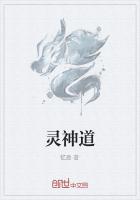The human mind is an instrument very easily fatigued.Only a few exceptions go on thinking restlessly--to the extreme exasperation of their neighbours.The normal mind craves for decisions, even wrong or false decisions rather than none.It clutches at comforting falsehoods.It loves to be told, "/There/, don't you worry.That'll be all right.That's /settled./" This war has come as an almost overwhelming challenge to mankind.To some of us it seems as it if were the Sphynx proffering the alternative of its riddle or death.Yet the very urgency of this challenge to think seems to paralyse the critical intelligence of very many people altogether.They will say, "This war is going to produce enormous changes in everything." They will then subside mentally with a feeling of having covered the whole ground in a thoroughly safe manner.Or they will adopt an air of critical aloofness.They will say, "How is it possible to foretell what may happen in this tremendous sea of change?" And then, with an air of superior modesty, they will go on doing--whatever they feel inclined to do.Many others, a degree less simple in their methods, will take some entirely partial aspect, arrive at some guesswork decision upon that, and then behave as though that met every question we have to face.Or they will make a sort of admonitory forecast that is conditional upon the good behaviour of other people."Unless the Trade Unions are more reasonable," they will say.Or, "Unless the shipping interest is grappled with and controlled." Or, "Unless England wakes up." And with that they seem to wash their hands of further responsibility for the future.
One delightful form of put-off is the sage remark, "Let us finish the war first, and then let us ask what is going to happen after it." One likes to think of the beautiful blank day after the signing of the peace when these wise minds swing round to pick up their deferred problems....
I submit that a man has not done his duty by himself as a rational creature unless he has formed an idea of what is going on, as one complicated process, until he has formed an idea sufficiently definite for him to make it the basis of a further idea, which is his own relationship to that process.He must have some notion of what the process is going to do to him, and some notion of what he means to do, if he can, to the process.
That is to say, he must not only have an idea how the process is going, but also an idea of how he wants it to go.It seems so natural and necessary for a human brain to do this that it is hard to suppose that everyone has not more or less attempted it.
But few people, in Great Britain at any rate, have the habit of frank expression, and when people do not seem to have made out any of these things for themselves there is a considerable element of secretiveness and inexpressiveness to be allowed for before we decide that they have not in some sort of fashion done so.Still, after all allowances have been made, there remains a vast amount of jerry-built and ready-made borrowed stuff in most of people's philosophies of the war.The systems of authentic opinion in this world of thought about the war are like comparatively rare thin veins of living mentality in a vast world of dead repetitions and echoed suggestions.And that being the case, it is quite possible that history after the war, like history before the war, will not be so much a display of human will and purpose as a resultant of human vacillations, obstructions, and inadvertences.We shall still be in a drama of blind forces following the line of least resistance.
One of the people who is often spoken of as if he were doing an enormous amount of concentrated thinking is "the man in the trenches." We are told--by gentlemen writing for the most part at home--of the most extraordinary things that are going on in those devoted brains, how they are getting new views about the duties of labour, religion, morality, monarchy, and any other notions that the gentleman at home happens to fancy and wished to push.
Now that is not at all the impression of the khaki mentality Ihave reluctantly accepted as correct.For the most part the man in khaki is up against a round of tedious immediate duties that forbid consecutive thought; he is usually rather crowded and not very comfortable.He is bored.
The real horror of modern war, when all is said and done, is the boredom.To get killed our wounded may be unpleasant, but it is at any rate interesting; the real tragedy is in the desolated fields, the desolated houses, the desolated hours and days, the bored and desolated minds that hang behind the melee and just outside the melee.The peculiar beastliness of the German crime is the way the German war cant and its consequences have seized upon and paralysed the mental movement of Western Europe.Before 1914 war was theoretically unpopular in every European country; we thought of it as something tragic and dreadful.Now everyone knows by experience that it is something utterly dirty and detestable.We thought it was the Nemean lion, and we have found it is the Augean stable.
But being bored by war and hating war is quite unproductive /unless you are thinking about its nature and causes so thoroughly that you will presently be able to take hold of it and control it and end it./ It is no good for everyone to say unanimously, "We will have no more war," unless you have thought out how to avoid it, and mean to bring that end about.It is as if everyone said, "We will have no more catarrh," or "no more flies," or "no more east wind." And my point is that the immense sorrows at home in every European country and the vast boredom of the combatants are probably not really producing any effective remedial mental action at all, and will not do so unless we get much more thoroughly to work upon the thinking-out process.
In such talks as I could get with men close up to the front Ifound beyond this great boredom and attempts at distraction only very specialised talk about changes in the future.Men were keen upon questions of army promotion, of the future of conscription, of the future of the temporary officer, upon the education of boys in relation to army needs.But the war itself was bearing them all upon its way, as unquestioned and uncontrolled as if it were the planet on which they lived.















